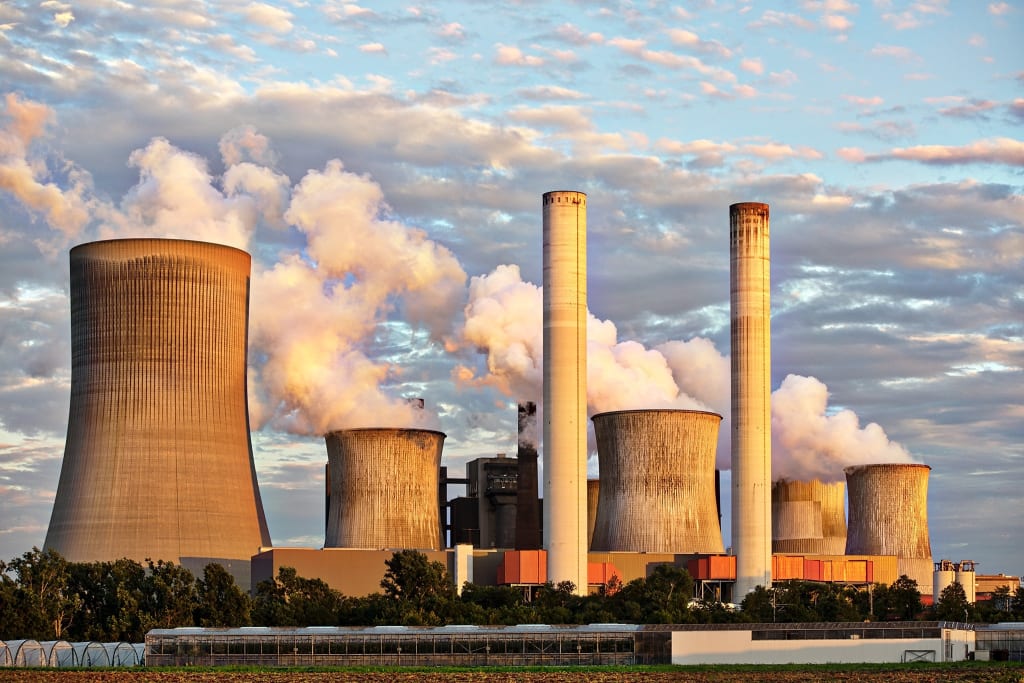Renewable Energy Sources
Unearthing the Earth's Power: A Journey into Geothermal Energy

In the awe-inspiring realm of sustainable and renewable energy, geothermal energy emerges as a captivating frontier. As humanity faces the critical need to combat climate change and reduce our reliance on finite fossil fuels, the boundless potential of geothermal energy beckons. This article embarks on a fascinating expedition into the world of geothermal energy, exploring its origins, advantages, technologies, and the transformative impact it can bestow upon our energy landscape.
Unveiling Geothermal Energy
Geothermal energy harnesses the natural heat emanating from the Earth's core and crust. This remarkable source of energy is born from the molten rock and magma deep within the Earth. By capturing this primal heat and converting it into usable power, geothermal systems produce electricity without relying on fossil fuels, making it an eco-friendly and sustainable energy solution.
Advantages of Geothermal Energy
Endless and Inexhaustible: Geothermal energy is an infinite resource as long as the Earth's core continues to radiate heat. It remains unyielding and everlasting, offering a stable source of power that won't run dry like finite fossil fuels.
Environmentally Friendly: Geothermal power plants emit minimal greenhouse gases, making them environmentally friendly and contributing significantly to the reduction of carbon emissions. This clean energy alternative plays a crucial role in mitigating climate change and preserving our planet.
Stable and Reliable: Geothermal energy provides a consistent and reliable power supply, unaffected by fluctuations in weather conditions or fuel prices. This characteristic ensures a steady electricity output, making it dependable for continuous power generation.
Small Footprint: Geothermal power plants occupy relatively small surface areas compared to other energy sources like coal or natural gas power plants. This compact footprint minimizes the impact on land and allows for the coexistence of geothermal facilities with other land uses.
Baseload Power Source: Geothermal power serves as a baseload power source, capable of generating a constant supply of electricity around the clock. This reliability sets it apart from some renewable sources, such as solar and wind, which depend on weather conditions.
Geothermal Technologies
Geothermal Power Plants: These plants tap into subsurface reservoirs of hot water and steam to generate electricity. The most common types are flash steam, binary cycle, and dry steam power plants, each utilizing different temperatures of geothermal resources.
Geothermal Heat Pumps: Geothermal heat pumps use the Earth's stable underground temperature to provide heating, cooling, and hot water for residential and commercial buildings. They are energy-efficient and reduce the reliance on traditional heating and cooling systems.
Direct Use Applications: Geothermal energy finds applications beyond electricity generation. It can be used directly for heating buildings, drying crops, and even heating swimming pools.
Global Adoption and Potential
Geothermal energy has garnered increasing attention worldwide as countries strive to transition to sustainable and low-carbon energy systems. Some regions, such as Iceland, the Philippines, and New Zealand, have already embraced geothermal energy as a significant part of their energy mix. Prominent catalysts propelling its worldwide acceptance encompass:
Climate Commitments: Nations are committing to reducing greenhouse gas emissions and adopting clean energy sources to meet climate targets. Geothermal energy's eco-friendly nature aligns with these commitments.
Energy Independence: Relying on geothermal energy reduces dependency on imported fossil fuels, enhancing energy security and mitigating the impacts of geopolitical fluctuations.
Economic Development: Geothermal projects stimulate economic growth by creating jobs and attracting investments, particularly in regions rich in geothermal resources.
Challenges and Future Outlook
Despite its numerous advantages, geothermal energy faces some challenges. Not all locations have accessible geothermal reservoirs, limiting widespread implementation. Additionally, the initial development costs can be high, posing financial obstacles.
Nonetheless, the future outlook for geothermal energy remains promising. Advancements in drilling technology and exploration techniques hold the promise of uncovering more geothermal resources. As the world embraces sustainable energy solutions, geothermal energy is poised to play an increasingly vital role in our energy transition.
Conclusion
Geothermal energy embodies a remarkable gift from the depths of the Earth. By tapping into this primal source of power, we unlock a realm of infinite possibilities. As we journey towards a greener and more sustainable future, geothermal energy stands as an inspiring beacon of hope. Let us embrace the Earth's abundant heat and weave a harmonious tapestry of clean and renewable energy, forging a path towards a brighter and more sustainable tomorrow.





Comments
There are no comments for this story
Be the first to respond and start the conversation.